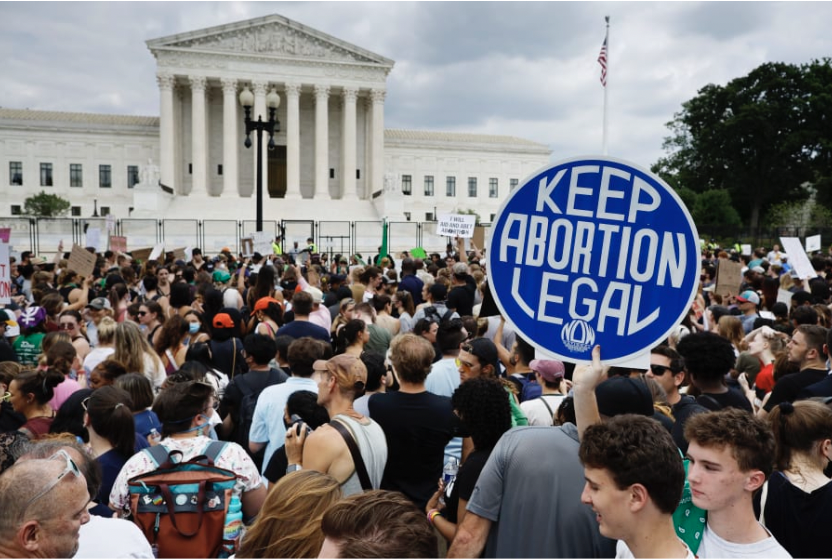On June 24, 2022, with the case Dobbs v. Jackson Women’s Health Organization, the U.S. Supreme Court overturned its 1973 ruling in Roe v. Wade, setting off a cascade of abortion bans in 26 states. [1] However, lawmakers in several states, such as Arkansas, South Dakota, Texas, and Missouri, are now considering even further bans that would prevent women from traveling to obtain an abortion in a state where it is legal. Such bans could also potentially outlaw anyone from “aiding and abetting” travels for abortion purposes. [2] When reviewing the Constitution and subsequent Supreme Court and lower court decisions, it is clear that these laws are unconstitutional. Out-of-state abortion bans do not have legal standing due to protections by the Commerce Clause and the Privileges and Immunities Clause of the Constitution, as interpreted by various courts.
Read MoreIn Alabama, some felons, though solvent of all their debts to the state, return to free society as partial citizens, unable to participate in the democratic franchise. [1] Their crimes cover a wide severity of offenses, which fall under the vague category of “moral turpitude.” [2] Alabama allows felons to regain eligibility to vote if they fully complete the original terms of sentence, fees and fines included. [3] These vague definitions of qualifying crimes and fine print attempts at trapping weary felons in voting limitations prevail across the country—not just in the Cotton State—and are unusually and harmfully prohibitive to those attempting a healthy return to citizenship. Permanent felon disenfranchisement and abusive restorative policies for felons rejoining the fold are harmful, and an untenable infringement on American voting rights and democracy. Though opportunities exist for bringing about redress for millions of those without suffrage, especially involving applications of the Equal Protections clause of the 14th Amendment.
Read MoreBy living and aging in the United States, many Americans assume the goodness, the neutrality, and rationality of law. Some even judge the morality of others based on their adherence to these legal regulations, without critiquing the merits or source of the law itself. Others recognize that some laws unequivocally create unjust worlds and resist them actively. Few, however, question the very nature of law as a systemic means of regulating and organizing the social Normative, arising not from objective and liberal ‘truth’, but from “a human desire for reliability and pattern that protects a finite being from a chaotic world.”
Read MoreThis question posed by Mount Lemmon Fire District v. Guido is a microcosm of a much bigger issue. In recent years, the United States Supreme Court has been frequently tasked with filling in the holes left by incomplete legislation, a task of interpretation that readily encroaches on the law-writing duties entrusted to the Congress by the Constitution. Especially in the area of age discrimination regulation, the task of flushing out crucial details has been relegated to the courts. In order to properly understand this issue, some terms need to be defined.
Read MoreJury nullification is evidently a power exercised by jurors. The question remains how jurors can become informed of this right without facing legal punishments for attempting to influence a jury. Today, because of unclear and incomprehensive rulings on jury nullification, citizens have been arrested and charged with jury tampering when informing jurists of their de facto right to question a law.
Read MoreA major reappraisal of the U.S.-China trade relationship may have begun in the supplements aisle of your local health food store. The U.S. Supreme Court’s unanimous decision in Animal Science Products Inc. v. Hebei Welcome Pharmaceutical Co. 138 S. Ct. 1865 (2018) settled an international dispute spanning more than a decade over the sale of vitamin C supplements and the procedures for interpreting foreign law in U.S. federal courts.
Read MoreWhile the Miller and Montgomery rulings have put the state of juvenile life without parole sentences under heavy scrutiny, their effects have not been uniform across the country. Although states such as Iowa and Kansas have deemed life without parole sentences as unconstitutional and have even limited mandatory minimum sentences for juveniles, twenty-nine states have maintained their rights to these inhumane sentences. I
Read MoreAlthough the 2018 Midterm Elections were held on November 6, not every race was called by the end of the night. Some elections had results that were too close to call, mechanical and technological issues with voting machines, or provisional ballots left uncounted. In the gubernatorial race in Georgia, the certification of election results was delayed by a federal judge after concerns about the state’s voter registration system and the counting of provisional ballots was brought to the court’s attention.
Read MoreMasterpiece Cakeshop LTD v. Colorado Civil Rights Commission was a 2012 case from Lakewood, Colorado that pits First Amendment rights to speech and religion against anti-discrimination legislation. This case originates with a baker, Jack Phillips, who refused to create a wedding cake for a gay couple. Phillips told the couple that he did not create wedding cakes for same-sex couples because of his religious opposition to same-sex marriage and because Colorado, at the time, did not recognize same-sex marriages.
Read More








